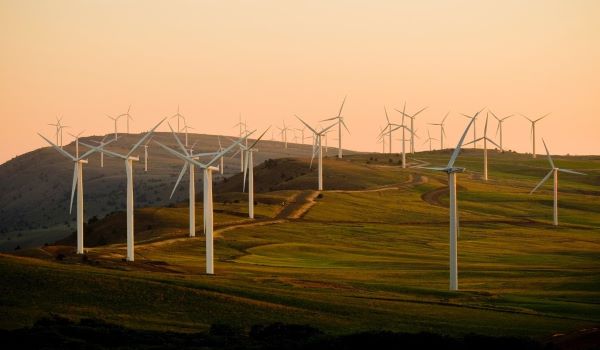The government is providing a broad plan of required transmission systems for having 537 GW of renewable energy capacity by the year 2030

R. K. Singh, Union Minister for Power and NRE launches plan “Transmission System for Integration of over 500 GW RE Capacity by 2030" in presence of Krishan Pal Gurjar, Minister of State for Power; Bhagwanth Khuba, Minister of State for Non Renewable Energy; Alok Kumar, Secretary, Power; Bhupinder Singh Bhalla, Secretary, Non Renewable Energy; Ghanshyam Prasad, Chairperson, Central Electricity Authority; and Ajay Yadav, Joint Secretary, Non Renewable Energy.
The Ministry of Power had constituted a high-level committee under Chairperson, Central Electricity Authority with representatives from Solar Energy Corporation of India, Central Transmission Utility of India Ltd., Power Grid Corporation of India Ltd., National Institute of Solar Energy, and National Institute of Wind Energy for planning the transmission system required for having 500 GW of non-fossil fuel based installed capacity by 2030.
The Committee prepared a detailed Plan titled, “Transmission System for Integration of over 500 GW RE Capacity by 2030" in consultation with states and other stakeholders. The Plan is a major step towards achieving the goal of integrating 500 GW of non-fossil fuel based capacity by 2030 by providing a broad plan of required transmission system for having 537 GW of renewable energy capacity by the year 2030.
The planned additional transmission systems required for having 500 GW of non-fossil fuel include 8120 ckm of High Voltage Direct Current Transmission corridors (+800 kV and +350 kV), 25,960 ckm of 765 kV ac lines, 15,758 ckm of 400 kV lines and 1052 ckm of 220 kV cable at an estimated cost of 2.44 lakh crore.
The transmission plan also includes a transmission system required for evacuation of 10 GW off-shore wind located in Gujarat and Tamilnadu at an estimated cost of Rs. 0.28 lakh crore. With the planned transmission system, the inter-regional capacity will increase to about 1.50 lakh MW by 2030 from 1.12 lakh MW at present.
The Plan has identified major upcoming non-fossil fuel based generation centres in the country, which include Fatehgarh, Bhadla, Bikaner in Rajasthan, Khavda in Gujarat, Anantapur, Kurnool Renewable Energy Zones in Andhra Pradesh, offshore wind potentials in Tamil Nadu and Gujarat, Renewable Energy Park in Ladakh etc. and based on these potential generation centres, transmission systems have been planned.
The planned transmission system project will provide visibility to the Renewable Energy Developers about the potential generation sites and scale of investment opportunity. Further, it will also provide the Transmission Service Providers the vision of growth opportunity available in the transmission sector along with investment opportunities of about 2.44 lakh crore.
Subscribe to our newsletter & stay updated.